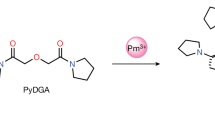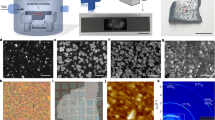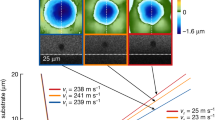Abstract
IT is well known that cæsium titanium alum exhibits no specific heat anomaly due to Stark splitting, but only a large increase at very low temperatures attributed to magnetic interaction between the ions. This is explained by the well-supported hypothesis that the orbital momentum is quenched, leaving the ion effectively in an 2S state since it possesses only one electron spin, and Kramers has shown that the 2S state is remarkably free from splitting due to the lattice field. The cupric ion would be expected to behave similarly, since susceptibility measurements show that the orbital momentum is largely quenched and since there is only one electron spin.
This is a preview of subscription content, access via your institution
Access options
Subscribe to this journal
Receive 51 print issues and online access
$199.00 per year
only $3.90 per issue
Buy this article
- Purchase on Springer Link
- Instant access to full article PDF
Prices may be subject to local taxes which are calculated during checkout
Similar content being viewed by others
References
Reekie, J., in the Press.
Author information
Authors and Affiliations
Rights and permissions
About this article
Cite this article
ASHMEAD, J. Specific Heat of Copper Sulphate below 1° K. Nature 143, 853–854 (1939). https://doi.org/10.1038/143853a0
Issue Date:
DOI: https://doi.org/10.1038/143853a0
This article is cited by
Comments
By submitting a comment you agree to abide by our Terms and Community Guidelines. If you find something abusive or that does not comply with our terms or guidelines please flag it as inappropriate.



